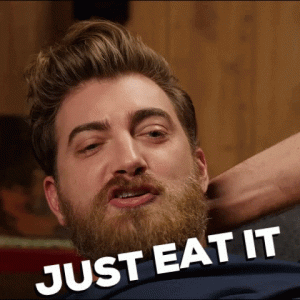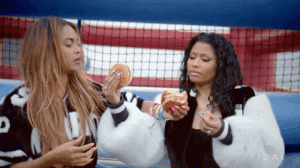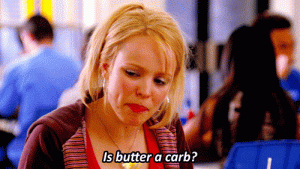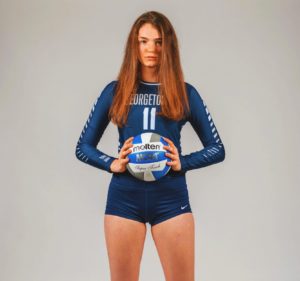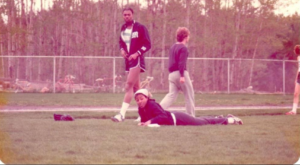
Kate Empey
Kate Empey wrote this article for you. Click the icon to view her awesomeness.
As athletes, we exert our bodies more than the average woman but, for some reason, feel uncertain about eating a larger quantity of food.
Eating enough to satisfy a sportswoman’s physical needs is sometimes judged as “unladylike”.
This judgment can be internal and made up in our own minds.
Or, it can come from our friends and family who don’t understand why we eat as much as we do.
This criticism has caused countless female athletes, including myself, to feel insecure about eating around people.
Ironman triathlete Alyssa Godesky eats two breakfasts, lunches, dinners, and often dessert.
Alyssa doesn’t find her diet weird or embarrassing. She considers her diet healthy and normal for a female athlete in training.
I agree with Alyssa, and I’m sick of the food shaming.
Let’s talk about how we can create a healthy mindset around eating in front of other people.
Stop listening to your imaginary audience.
Imagine one of your teammates asking you, “Hey girl, do you think I’m eating too much at team meals?”
How would you respond?
Would you even notice if she ate slightly more than everyone else?
If you did notice, would you judge her for it?
Of course, not. You guys have been training, and she’s hungry!
An imaginary audience tells you that everyone is watching you and your behavior…
When the truth is, what we are most self-conscious about is usually something that no one but ourselves has noticed.
It’s kind of like that “massive” pimple on your forehead that you swear every person at school knows about…
You think that others will point and laugh and stare at it, but they actually don’t care.
The same thing can happen with food.
You might think you’re overeating in public and become fearful of others’ judgment, but most of the time, no one has even noticed.
Just give your body what it needs.
If you’re tired, you don’t force yourself to stay awake.
So, why then, if you’re hungry, would you force yourself to eat less than what your body needs?
Be honest with yourself: Is the fear of other people’s judgment, in response to your public “overeating”, worth your physical and mental health?
The answer is no.
Food is fuel.
As sportswomen, we put our bodies under immense stress.
Non-athletes and sedentary people do not need the same caloric intake as a marathon runner to sustain themselves.
According to the Dietary Guidelines for Americans from the Office of Disease Prevention and Health Promotion, a sedentary woman, ages 19 to 25, needs approximately 2,000 calories a day.
Yes, 2,000 calories per day. For a NON-ACTIVE young female adult.
Jessica Napolitana, MS, RD, CSSD, LD, a registered dietitian on staff for the Sports Medicine department at Nationwide Children’s Hospital in Ohio, stated in an NPR interview, “it’s not uncommon for these young athletes to need as much as 3,500 calories a day — which can seem scarily high to a teenage girl worried about body image.”
That said, if a female beach volleyball player were to eat like an inactive woman, she would put herself at risk for various medical conditions that could hinder her performance and health.
Not cool.
Let’s embrace the fact that we need more food than the average woman, and ENJOY eating it!
By the way, if someone scowls at you and asks, “Omg, how do you eat so much?”, just direct them these facts right here.
Choose supportive friends.
I lived in a sorority house for a year while I was a club volleyball player at my Colorado State University.
It would be rare if I had a house meal without feeling the stares from other women gawking at my full plate of carbs, protein, and veggies.
I felt self-conscious and unsure of whether I should take my plate up to my room to avoid being judged.
I knew I had to eat to be healthy, but I didn’t want my friends to see me inhale two servings of lasagna.
So, I made a conscious effort to sit with the girls who I knew would not be the slightest concerned about what was on my plate.
Ditch the haters.
It’s possible that some of your friends won’t understand that athletes require a larger quantity of food to perform and grow.
This is perfectly reasonable, however, you are in control of who you spend time with.
If you think a friend is criticizing your eating habits, you probably shouldn’t be friends with her – much less sitting down for meals with her.
Oftentimes, the people who are quickest to judge us are the most insecure of all.


